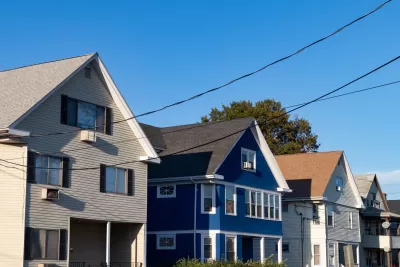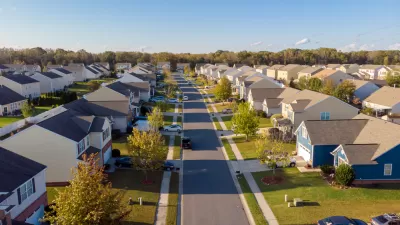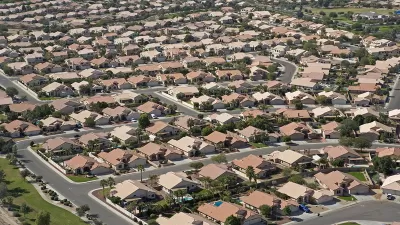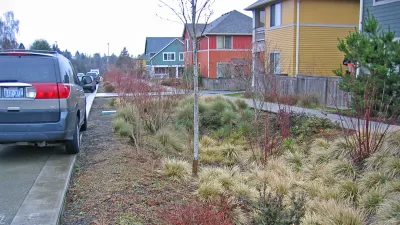An analysis of Connecticut zoning laws finds single-family neighborhoods are associated with higher incomes and whiter populations than the 2 percent of the state that permits multifamily housing.

A new study from the Urban Institute adds to the growing body of evidence linking single-family zoning to segregation and exclusion in housing. Jared Brey outlines the results in Governing, noting that the study used the Connecticut Zoning Atlas to analyze zoning laws in Connecticut, where 62 percent of land is designated for single-family housing only. Meanwhile, building housing with more than two units is only permitted on 2 percent of the state’s land.
According to the study authors, “Single-family areas are associated with higher home values, higher median incomes and greater proportions of white people than other areas, according to the report.” The report concludes that “strict zoning regulations … are associated with inadequate access to affordable housing and with the segregation of people by income, race and ethnicity.”
As more and more data bears out the impact of single-family zoning, researchers hope “It could add understanding into hot debates about how zoning is linked with affordability and exclusion, but could also help policymakers make decisions about things like small-business development and climate adaptation.”
FULL STORY: Single-Family Zoning Linked With Income and Race Segregation

Planetizen Federal Action Tracker
A weekly monitor of how Trump’s orders and actions are impacting planners and planning in America.

Map: Where Senate Republicans Want to Sell Your Public Lands
For public land advocates, the Senate Republicans’ proposal to sell millions of acres of public land in the West is “the biggest fight of their careers.”

Restaurant Patios Were a Pandemic Win — Why Were They so Hard to Keep?
Social distancing requirements and changes in travel patterns prompted cities to pilot new uses for street and sidewalk space. Then it got complicated.

Platform Pilsner: Vancouver Transit Agency Releases... a Beer?
TransLink will receive a portion of every sale of the four-pack.

Toronto Weighs Cheaper Transit, Parking Hikes for Major Events
Special event rates would take effect during large festivals, sports games and concerts to ‘discourage driving, manage congestion and free up space for transit.”

Berlin to Consider Car-Free Zone Larger Than Manhattan
The area bound by the 22-mile Ringbahn would still allow 12 uses of a private automobile per year per person, and several other exemptions.
Urban Design for Planners 1: Software Tools
This six-course series explores essential urban design concepts using open source software and equips planners with the tools they need to participate fully in the urban design process.
Planning for Universal Design
Learn the tools for implementing Universal Design in planning regulations.
Heyer Gruel & Associates PA
JM Goldson LLC
Custer County Colorado
City of Camden Redevelopment Agency
City of Astoria
Transportation Research & Education Center (TREC) at Portland State University
Camden Redevelopment Agency
City of Claremont
Municipality of Princeton (NJ)





























